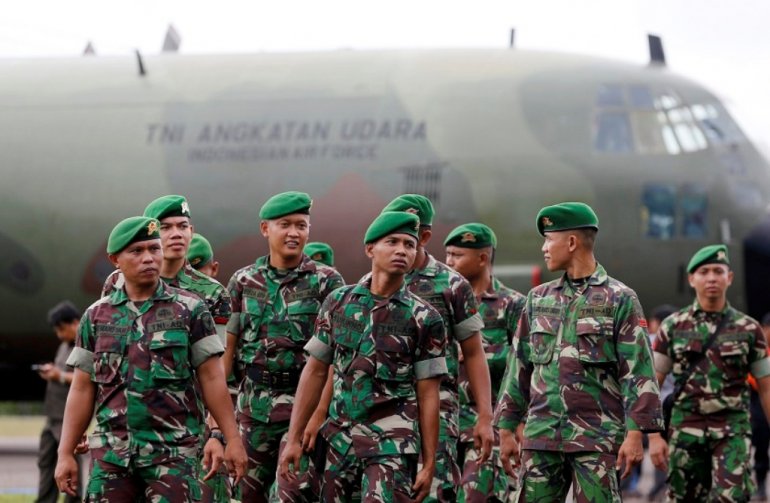Indonesia is deploying military paramedics to carry food and vaccines to a remote part of its easternmost
province of Papua, where reports say at least 61 infants died from malnutrition and diseases such as measles. Papua is one of Indonesia’s poorest provinces despite being rich in resources and President Joko Widodo pledged to speed its development when he came to power in 2014.
The situation in the remote Asmat regency was an “extraordinary incident”, the health ministry said in a statement, adding that it was sending 39 health workers there. The Indonesian military has sent 53 personnel including paramedics, besides medical equipment, vaccines and 11,100 packages of instant food, it added.
“We are handling the situation,” Health Minister Nila Moeloek told Reuters, blaming similar previous incidents on several factors. “There is a link between the malnutrition and (catching) other diseases,” Moeloek added. “If you’re undernourished, you will get those diseases.”
The ministry said it was still trying to estimate the number of deaths but daily newspaper Kompas on Monday said at least 61 infants had died. Many Papuans, who are predominantly Christian and a minority in the Muslim-majority country, criticize the government in Jakarta for neglecting Papua and instead being too focused on the densely-populated island of Java.
The province has also had a long-running and sometimes violent separatist movement since it was incorporated into Indonesia after a widely criticized U.N.-backed referendum in 1969. Catholic priest and rights activist John Jonga, blamed the crisis on a lack of vaccinations and a switch from more nutritious tubers to rice as a staple food.
He said he had voiced questions over Widodo’s policy of sending aid to Palestine and Myanmar’s Rohingya Muslim minority, rather than to Papua at a recent seminar at the Indonesia Institute of Sciences in Jakarta, the capital.
“We are lacking health facilities,” Jonga said. “That’s why in the seminar I asked why the president was busy with Myanmar and building a hospital in Gaza. Whereas in Papua, we have problems, difficulties with drugs and medical workers.”




